- Home
- Harry Harrison
Stars and Stripes In Peril sas-2 Page 32
Stars and Stripes In Peril sas-2 Read online
Page 32
“Indeed, sir, and I am sure that there was. And there were a lot of people who also seemed to believe that the Americans came by train, had seen them doing it.”
“Yes — of course, just what they would do. I can believe that. I have been in America and they are the great ones with their trains.” He stood and tapped the framed map on the wall. It had castles and heraldry that picked out the noble seats of Ireland, yet behind all the shields and coats of arms it was still visible as a map. “They landed here at Galway City, I’ll warrant. Beat down the local resistance, whatever there was of it, then took the trains to Dublin. What of the rest of Ireland?” he asked, turning back towards Riley. “What did you hear?”
“Saw, your lordship. A big announcement hung on the post office gate. I copied it here, just the gist if it, the best that I could, people were righting to get close to it and read it. Cork taken, it said, and all of the south of Ireland in the Liberators’ hands. That’s what they call themselves now, the Liberators.”
“They would, wouldn’t they?” he said bitterly. “But what of Belfast?”
“Fierce fighting there, that is what it said. But Belfast subdued, Ulster surrendered, Ireland one and indivisible and free. Martial law, with a dusk-to-dawn curfew, to be lifted as soon as the dissident elements are subdued. Those aren’t my words, I copied what I saw.”
“Yes, Riley, thank you. An excellent job.” Blessington dismissed the man with a flick of his hand and turned back to the map. “Trains,” he muttered to himself. It was so easy when you thought about it. There were no troops to speak of in the west of Ireland. None that he had ever seen. The invaders could land wherever they pleased there, to be greeted by rebels no doubt. Limerick to Cork. Galway to Dublin. Londonderry to Belfast — and no easy thing for them in the north, I’ll warrant. There are loyal people there. Not like the south of Ireland. A viper’s nest of Fenians. He turned away from the map as the door to the study opened.
“I saw Riley leaving,” Lady Sarah Blessington said. “Did he find out about the… troubles?”
“He did indeed. The troubles, as you see fit to call them, are a bloody invasion and a bloody war!” He knew that his wife disliked vulgarity and it gave him perverse pleasure to use it at this time. She was English by birth, very distantly related to the Queen, as she was fond of reminding him. Her eyes widened slightly, but she refused to be dragged into an argument.
“War?”
“The Americans, it seems, are the new masters of Ireland. While our troops are mucking about in Mexico, plotting some piddling invasion, the Americans have jumped the gun and are here. Now.”
“Our troops?” Sarah asked, stressing slightly the our.
Henry turned, fists clenched, to stare unseeingly out of the window. He was part of the Protestant landed gentry, one of the titled few in a sea of Catholics. Irish-born and reared, except for the few years at Cambridge, he was neither all of one nor part the other. Sarah had no problems. English-born, she carried that country locked into her bosom. But what about him? Where did he stand? What of his future?
Patrick Riley, manager of the estates of Trim Castle, had no such problem of identity. He had left the castle and walked to the row of tied cottages by the gatehouse. The door to his house opened directly into the kitchen. Peter, the Blessington butler, was waiting for him there. Seamus, the head groom, as well. Riley nodded at them and took down the stone crock and glasses for them all. Poured out good measures of whisky.
“Here’s to Ireland — free at last,” he said as he raised his glass.
“ ’Tis true, then,” Peter said.
“True as I’m sitting before you and drinking from this glass.”
“Not just rumors?” Seamus asked, always the suspicious one.
“Read it in the paper yourself,” he said, as he pulled a copy of the Irish Times from his tailcoat pocket and slammed it onto the table. The black letters of the headline leaped out at them:
THE LIBERATION OF IRELAND
“Glory be to God,” Peter said in a hushed voice, brushing the back of his hand across the newspaper, as delicately as he would a lover’s cheek.
“I gave his lordship a word or two about what was happening. But this paper is mine, for my children and their children’s children,” Riley said. “History has been made this day.”
“It has indeed,” Peter agreed, bending over to read the blessed words.
General William Tecumseh Sherman was also admiring the bold headline in the Irish Times. The first issue of the paper that had been published since the army had reached Dublin. Through the open window he could hear the cheering of the crowd outside in Sackville Street. He had moved his headquarters to the General Post Office here as soon as the telegraph wires had been repaired; all of them seemed to have terminated here. One of his aides had hung his big battleflag outside on the pole next to the main entrance. Now the street was packed solid with people come to see the flag and to cheer the liberating army.
“You are the man of the hour, General,” General Francis Meagher said as he came through the door.
“That credit belongs to you and your men in the Irish Brigade. First in battle, first in peace. We should hang an Irish flag up next to the stars and stripes.”
“We would if we could — but we don’t have one. Yet. I’m thinking that that will be the first order of business. But I’ll be forgetting my head next. The telegraph to Limerick is working again. The troop ship Memphis Star has finished loading and is just waiting for the message.”
“Fine. Here it is. Addressed to President Lincoln.” He handed it to an orderly who hurried away. “The Memphis Star is the fastest ship we have. Got a load of British prisoners below decks. Her captain assured me that she’ll do twenty-one knots all the way to Halifax, Nova Scotia — that’s where the new cable to the United States ends. That message will be in the President’s hands just as soon as the ship docks there.”
Meagher shook his head. “It is a miracle of modern telegraphic communication. It is a brand new world that we live in.”
The Cabinet was meeting when Hay brought the telegram to the President and laid it on the table before him.
“The message from General Sherman that you have been waiting for, Mr. President.”
Lincoln found his fingers trembling slightly when he put his glasses on. But his voice was firm as he read the telegraph message aloud.
“ ‘It is with the greatest pleasure that I inform you that our forces in the field in Ireland have achieved success on every front. The landings in Limerick and Galway were relatively unopposed, so that the attacks on Dublin and Cork went as planned. There was fierce resistance from British troops defending Dublin, but their defeat was the order of the day. The same might be said of Cork as well. The joint operation with the Navy was most successful in all the cities. However the defenders of Belfast, and the counter-attacking forces in the north, put up a strong resistance. They were in the end overwhelmed and defeated.
“ ‘I have declared martial law until the garrisons and pockets of enemy troops we bypassed in our swift attack are neutralized. They pose no real threat to peace since they are few in number and disorganized. I can therefore truthfully state that we have prevailed by might of arms. Ireland is free.’ It is signed General William Tecumseh Sherman.”
“I make it five days from beginning to end,” the Secretary of War said. “History has seen a Forty Years’ War, as well as other conflicts both longer and shorter. But, gentlemen, I don’t think history has ever seen a war before that began and ended in less than a week. This is a new kind of war, just as General Sherman told us. A lightning war where the enemy is overwhelmed — even as they are discovering that they are being attacked. Ireland is taken, the usurper defeated, the deed done.”
“For that we are most grateful,” Lincoln said wearily. “I, for one, am tired of war no matter how swiftly executed, how rapidly won. Perhaps now our British cousins will read the handwriting on the wall and will begin to underst
and. The warring is done. We look only to peace in the future. My fondest wish is that they will now withdraw their troops from this hemisphere and join us in looking forward to a peaceful future.”
“This is impossible!” Queen Victoria shrieked, her face flaming red under her white face powder. “You stand before Us and say that We are no longer Queen of Ireland?”
Lord Palmerston bent his head in a sorrowful bow. “That, Your Majesty, appears to be the case. We have had the wired report from the Conqueror about her investigations of Cork. In Northern Ireland the Scots troops have fought a successful retreat and have returned with the news that Belfast is taken as well. In addition there is the telegram from Holyhead that the mail ship from Kingstown has arrived on schedule, for the first time in a week. There were only British passengers aboard, and the vessel was short-handed since only British sailors remained on her crew. However she did carry copies of an Irish newspaper, which, in its entirety, is being telegraphed here even as we speak.” He straightened up and proffered a handful of telegraph papers. “These are the first to arrive. They speak in some detail of the defeat of our forces and the jubilation of the natives at what is referred to as the removal of the English yoke…”
Palmerston ceased speaking when he realized that the Queen was no longer listening. She was wailing, half-fainting, crying into the kerchief held by one of the circle of ladies-in-waiting who attended her. Murmuring his regrets Lord Palmerston bowed his way out.
“A damn’ black day indeed!” he said as the door closed behind him. He shoved the papers into his pocket as he turned to leave the palace.
“Damnation!” he shouted at the trembling royal servants. “This is not the end, I swear it is not — but it is the beginning! It will end only when those Americans are destroyed — destroyed to the last man! We were caught by surprise, that is all. This evil shall not prevail.”
A NEW IRELAND IS BORN
It was Sunday, the first Sunday since the brief battle for Ireland had ended with victory for the American troops. Church bells sounded throughout the land and in many churches prayers of thanks were given, and a warm welcome extended to the soldiers who came to attend services. Smiles and handshakes and, even better, in the public houses there was drink all around and no mention of payment expected from these brave men from across the sea.
In the south.
In the north of Ireland, in Belfast and in the cities that the Americans had marched through, the Catholics went to mass in silence, not even glancing at each other as they trod the rain-slick streets. Not until they were inside, and the church doors locked, did they dare speak, voices raised in questions that had no answers.
In Portstewart the Catholic church was next to the sand dunes, behind the beach where the Americans had landed. The priest had stood in the doorway while the long lines of gray clad soldiers had come up from the beach and passed his church. Some had waved to him as they went by. Even others — to his amazement — had crossed themselves as they passed his church. Grinning from ear to ear, he had made the sign of the cross, blessing them over and over. Now it was time to speak about this to his parishioners. The talk died away as he stood in the pulpit.
“We must be silent — and we must be hopeful. Those are the first two things that we must do. Silent because we do not know Ireland’s fate. We have seen the American army move south to Belfast. We can hope them all success there, and in the rest of Ireland. Have they invaded the south as well? We do not know. We can only hope — and we can pray. Pray that these men from across the sea have come here to unite Ireland in a freedom never experienced before. We can pray, pray earnestly for the success of their cause. But we must pray in silence until we know Ireland’s fate. Bow our heads and pray in the hope that they bring to these beleaguered shores.”
In Belfast there was a coldness in the Protestant congregations that matched the chill wind and driving rain under the lowering October sky. General Robert E. Lee and his officers rode from the Townhall Building, where he had his headquarters, to May Street Presbyterian Church where the gentry attended Sunday service. A troop of cavalry trotted by and Lee returned their salute: he noticed the sentries posted outside the government buildings. Martial law was still in effect.
There was a rustle of movement and suppressed whispers when the American officers passed between the high pillars and entered the church. The Reverend Ian Craig was just entering the pulpit and, although a most loquacious man at all other times, he could at this moment think of nothing to say. The military men marched calmly to the front row, which quickly emptied of the few souls there, and seated themselves. The officers sat upright, their hats on their laps, and looked expectantly at Reverend Craig. The silence lengthened until he cleared his voice and spoke.
His sermon was about redemption and brotherly love and was — for him — unexpectedly short. Nor did he stand at the doorway as his parishioners left, as was his wont, but instead hurried into his vestry.
“How do, ma’am,” General Lee said tipping his hat to a black-garbed and elderly woman passing in the aisle. She gasped, looked horrified, and hurried on. As did all the others.
“It ’pears like they think we got something catching,” James Longstreet observed.
“Maybe we do,” Lee said, and smiled enigmatically.
When he reached his headquarters the officer of the day had a message for him.
“Delegation of the locals here to see you, General.”
“How many of them?”
“The Mayor, a Mr. John Lytle, and ten members of the Belfast City Council.”
“Too many. Tell them that I’ll see the mayor and one more of them, that’s enough. And before you let them in send for Surgeon Reynolds.”
He went through the accumulated reports on his desk until Reynolds came in.
“Sit down, Francis, and look military. The locals have finally decided that they want to talk to us.”
“Well that is surely nice to hear. I wonder what they will have to say for themselves.”
“Complaints, first off, I imagine.” Lee was right.
“Mayor Lytle, Councilor Mullan,” the sergeant said as he ushered them in.
Lytle, a plump man in a dark frock coat looked decidedly angry. “I protest, sir, at the exclusion of the councilors…”
“Please be seated, gentleman,” Lee interrupted. “I am General Lee, military commandant of this city. This is Surgeon Reynolds, on my staff. This city is under martial law and it is I who decide the size of all meetings both public and private. I am sure that you will understand that. Now — how may I be of service?”
Lytle sat down heavily in his chair and fingered his gold watchfob before he spoke. “You say martial law, sir? And why is that — and how long will it continue?”
“I have declared martial law because this country is in a state of war between two opposing military groups. Once all military opposition has been eliminated and peace restored, martial law will be lifted.”
“I protest. You have fired on this country’s armed forces—”
“That I have not done, sir.” Lee’s words were sharp, his voice cold. “This country is Ireland and I have engaged only British troops.”
“But we are British. We protest your presence here, your invasion…”
“If I might speak,” Reynolds said quietly. “I would like to point out some inescapable truths.”
“You’re not American,” Mullen said accusingly, hearing Reynolds’s Irish accent.
“Ahh, but I am, Mr. Mullen. Born in Derry and educated here in Belfast, but just as American as the general here. Ours is a nation of immigrants — as is yours.”
“Never!”
“I would like you to remember that you are a nationalist and a Protestant, whose ancestors immigrated here from Scotland some many hundreds of years ago. If you wish to return to that land, General Lee informs me that you are free to do so. If you remain here you will be fairly treated as will be all Irishman.”
“You’
re a Teague,” Lytle snarled.
“No, sir,” Reynolds said coldly. “I am an Irish Catholic who is now an American citizen. In our country there is complete separation of Church and State. There is no official state religion…”
“But you will side with the Catholics against the Protestants, that’s what you will do…”
“Mr. Lytle.” Lee’s words cracked like a whip, silencing the man. “If you came here for a religious argument you may leave now. If you came as an elected official of this city, then address yourself to your reasons for your presence.”
Lytle was breathing hard, unable to speak. It was Councilor Mullan who broke the silence.
“General, the Protestants in the north are a much maligned people who are now united in peace with one another. We are a hard-working people who have built Belfast, in very few years, into a successful and growing city. We weave linen and build ships. But if we unite with the backward south — there will be changes I am sure. The past has been a turbulent one, but that I feel is over. Now what will happen to us?”
“You, and every other resident of this island, will be treated equally. I sincerely hope that you all follow the example of the people of Canada, where national elections have been held and a government has been democratically elected. The same we hope will be true of Mexico in the near future, now that the invading army has been expelled.”
“If you let them rule us there will be murder in the streets—”
“Mr. Lytle,” Reynolds said quietly, “there is no more ‘them.’ There is only democracy now, where all men are equal. One man, one vote. I should think that as an elected official yourself you would respect that fact. Ireland will no longer be ruled from above, ruled by a distant monarch and a self-appointed nobility. You are a free man and you should be grateful for that freedom.”
“Freedom!” he cried out. “We are ruled by invaders!”

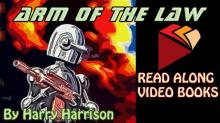 Arm of the Law
Arm of the Law The Velvet Glove
The Velvet Glove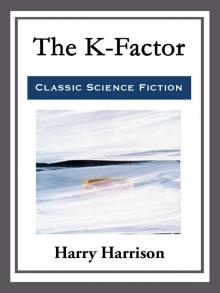 The K-Factor
The K-Factor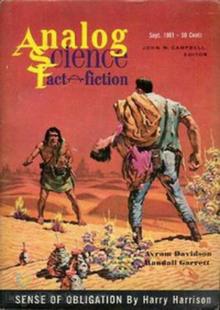 Sense of Obligation
Sense of Obligation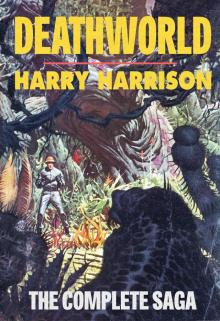 Deathworld: The Complete Saga
Deathworld: The Complete Saga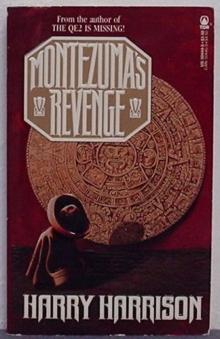 Montezuma's Revenge
Montezuma's Revenge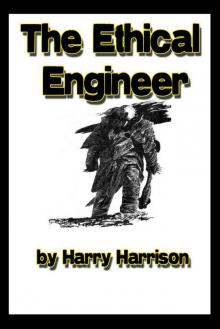 The Ethical Engineer
The Ethical Engineer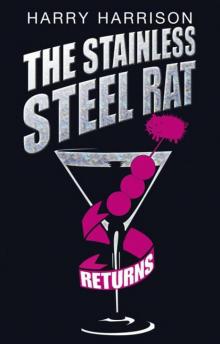 The Stainless Steel Rat Returns
The Stainless Steel Rat Returns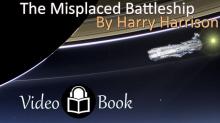 The Misplaced Battleship
The Misplaced Battleship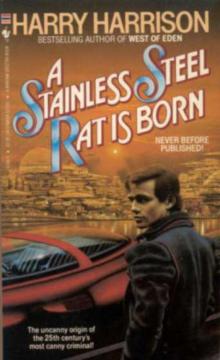 The Stainless Steel Rat is Born
The Stainless Steel Rat is Born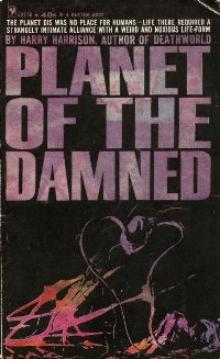 Planet of the Damned bb-1
Planet of the Damned bb-1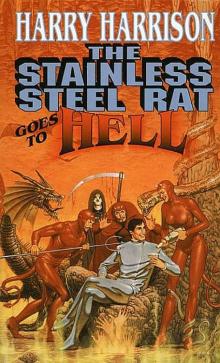 The Stainless Steel Rat Goes to Hell ssr-10
The Stainless Steel Rat Goes to Hell ssr-10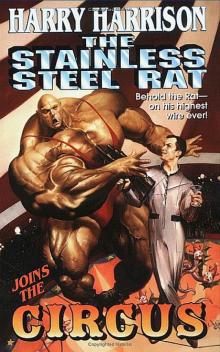 The Stainless Steel Rat Joins the Circus ssr-11
The Stainless Steel Rat Joins the Circus ssr-11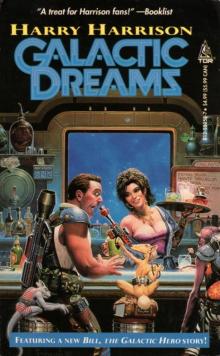 Galactic Dreams
Galactic Dreams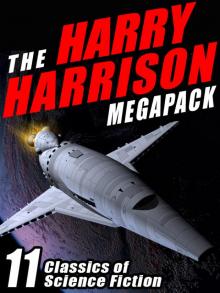 The Harry Harrison Megapack
The Harry Harrison Megapack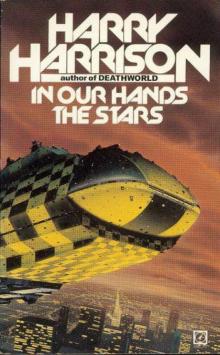 In Our Hands the Stars
In Our Hands the Stars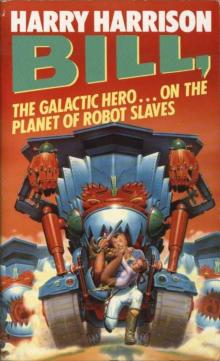 On the Planet of Robot Slaves
On the Planet of Robot Slaves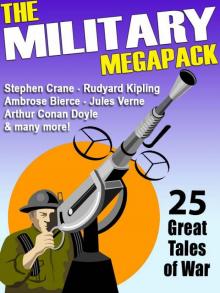 The Military Megapack
The Military Megapack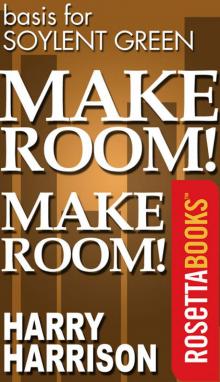 Make Room! Make Room!
Make Room! Make Room!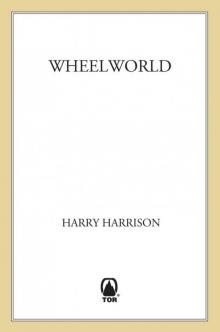 Wheelworld
Wheelworld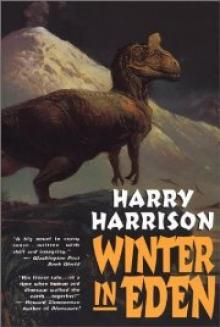 Winter in Eden e-2
Winter in Eden e-2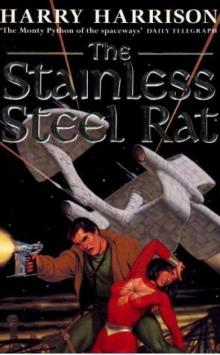 The Stainless Steel Rat
The Stainless Steel Rat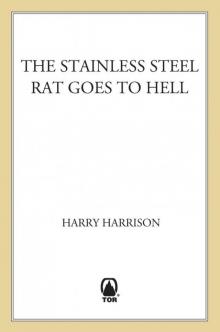 The Stainless Steel Rat Goes to Hell
The Stainless Steel Rat Goes to Hell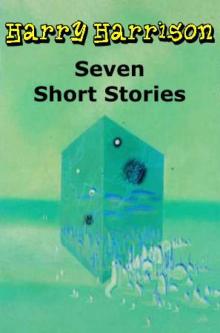 Harry Harrison Short Stoies
Harry Harrison Short Stoies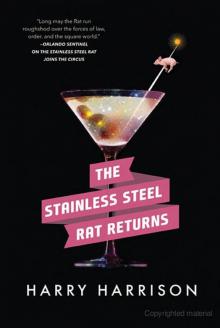 Stainless Steel Rat 11: The Stainless Steel Rat Returns
Stainless Steel Rat 11: The Stainless Steel Rat Returns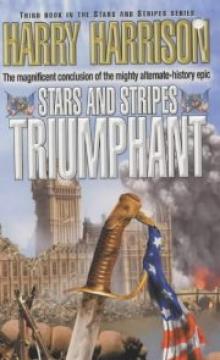 Stars and Stripes Triumphant sas-3
Stars and Stripes Triumphant sas-3 West of Eden
West of Eden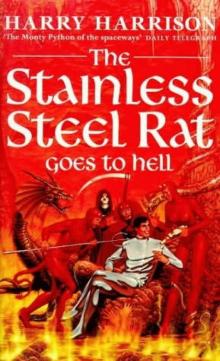 The Stainless Steel Rat Go's To Hell
The Stainless Steel Rat Go's To Hell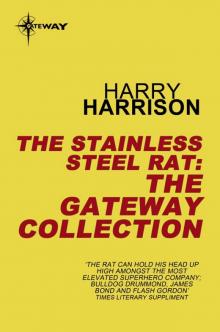 The Stainless Steel Rat eBook Collection
The Stainless Steel Rat eBook Collection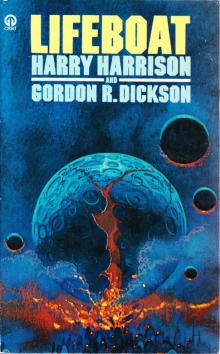 Lifeboat
Lifeboat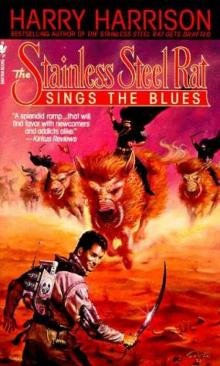 The Stainless Steel Rat Sings the Blues
The Stainless Steel Rat Sings the Blues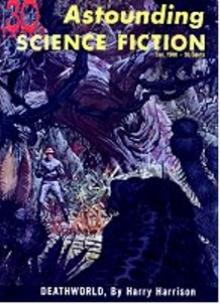 Deathworld tds-1
Deathworld tds-1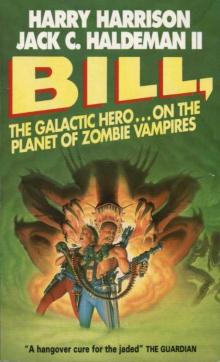 On the Planet of Zombie Vampires
On the Planet of Zombie Vampires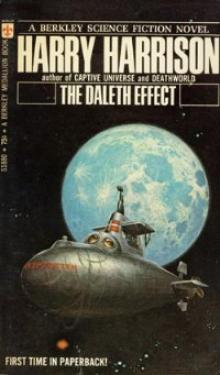 The Daleth Effect
The Daleth Effect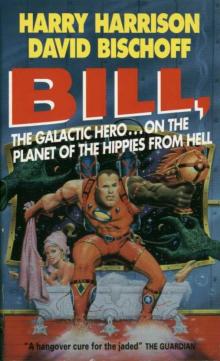 On The Planet Of The Hippies From Hell
On The Planet Of The Hippies From Hell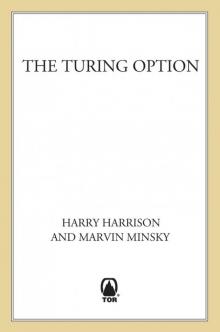 The Turing Option
The Turing Option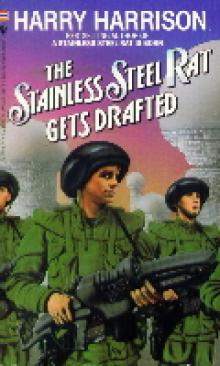 The Stainless Steel Rat Gets Drafted
The Stainless Steel Rat Gets Drafted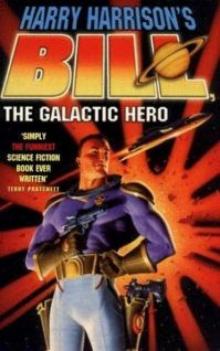 Bill, the Galactic Hero btgh-1
Bill, the Galactic Hero btgh-1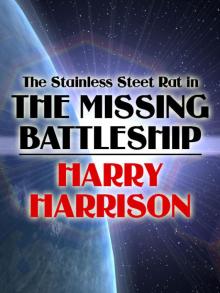 The Stainless Steel Rat in The Missing Battleship
The Stainless Steel Rat in The Missing Battleship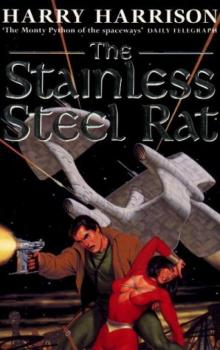 The Stainless Steel Rat ssr-1
The Stainless Steel Rat ssr-1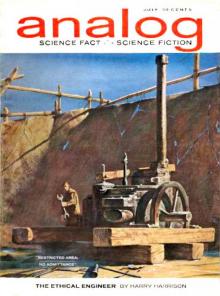 The Ethical Engineer (the deathworld series)
The Ethical Engineer (the deathworld series)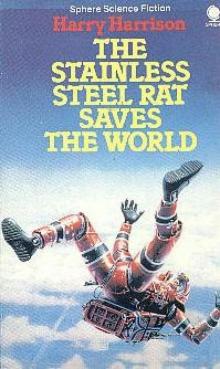 The Stainless Steel Rat Saves the World ssr-3
The Stainless Steel Rat Saves the World ssr-3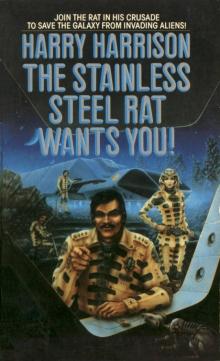 The Stainless Steel Rat Wants You
The Stainless Steel Rat Wants You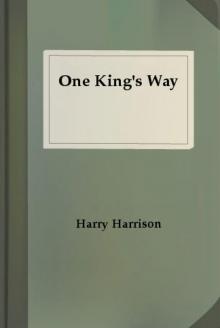 One King's Way thatc-2
One King's Way thatc-2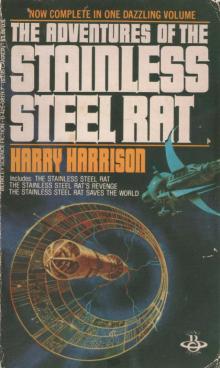 The Stainless Steel Rat Saves The World
The Stainless Steel Rat Saves The World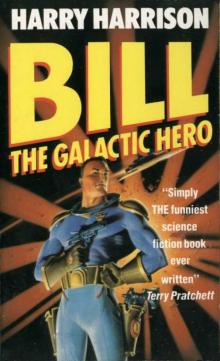 Bill, the Galactic Hero
Bill, the Galactic Hero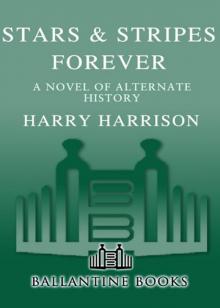 Stars & Stripes Forever
Stars & Stripes Forever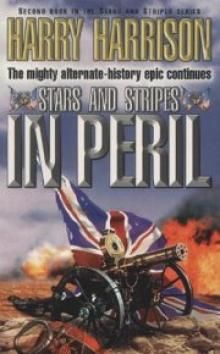 Stars and Stripes In Peril sas-2
Stars and Stripes In Peril sas-2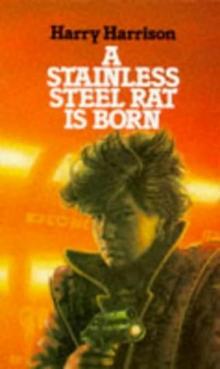 A Stainless Steel Rat Is Born ssr-6
A Stainless Steel Rat Is Born ssr-6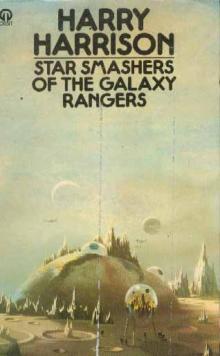 Star Smashers of the Galaxy Rangers
Star Smashers of the Galaxy Rangers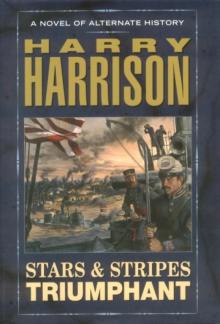 Stars & Stripes Triumphant
Stars & Stripes Triumphant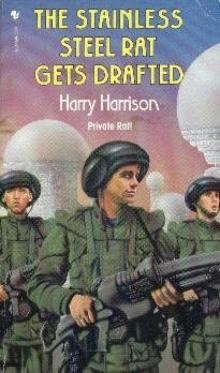 The Stainless Steel Rat Gets Drafted ssr-7
The Stainless Steel Rat Gets Drafted ssr-7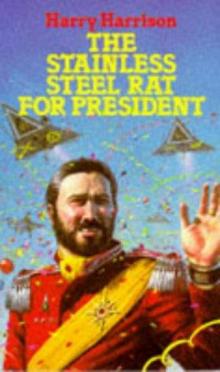 The Stainless Steel Rat for President ssr-5
The Stainless Steel Rat for President ssr-5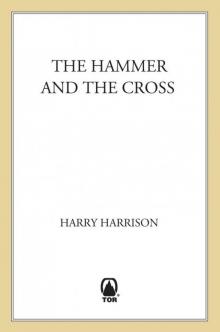 The Hammer & the Cross
The Hammer & the Cross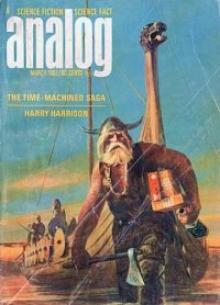 The Technicolor Time Machine
The Technicolor Time Machine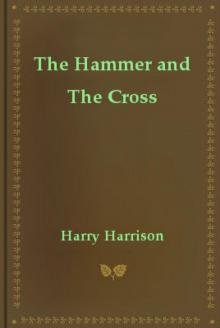 The Hammer and The Cross thatc-1
The Hammer and The Cross thatc-1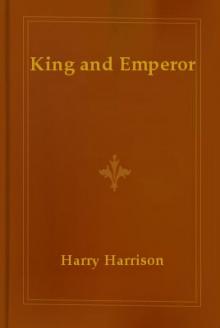 King and Emperor thatc-3
King and Emperor thatc-3 Return to Eden
Return to Eden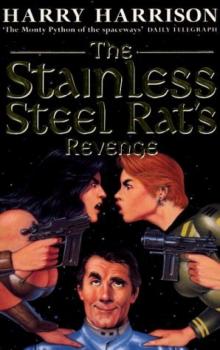 The Stainless Steel Rat’s Revenge ssr-2
The Stainless Steel Rat’s Revenge ssr-2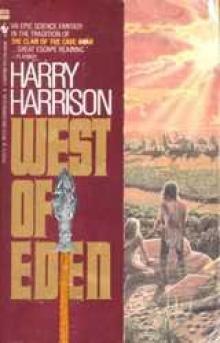 West of Eden e-1
West of Eden e-1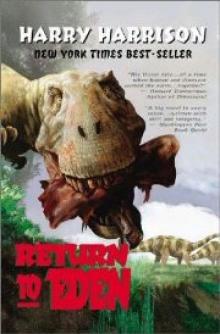 Return to Eden e-3
Return to Eden e-3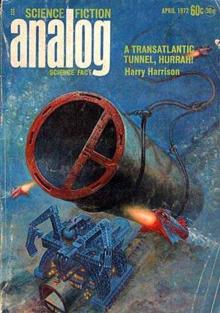 A Transatlantic Tunnel, Hurrah!
A Transatlantic Tunnel, Hurrah!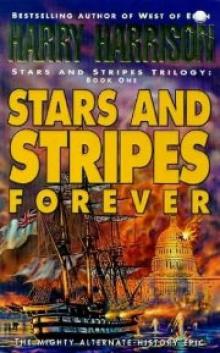 Stars and Stripes Forever sas-1
Stars and Stripes Forever sas-1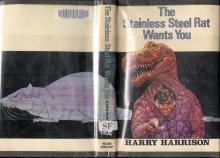 The Stainless Steel Rat Wants You ssr-4
The Stainless Steel Rat Wants You ssr-4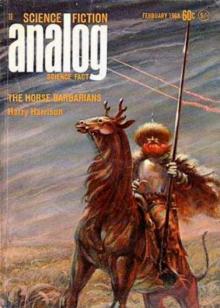 The Horse Barbarians tds-3
The Horse Barbarians tds-3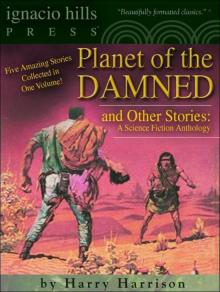 Planet of the Damned and Other Stories: A Science Fiction Anthology (Five Books in One Volume!)
Planet of the Damned and Other Stories: A Science Fiction Anthology (Five Books in One Volume!)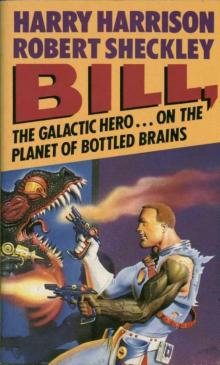 On the Planet of Bottled Brains
On the Planet of Bottled Brains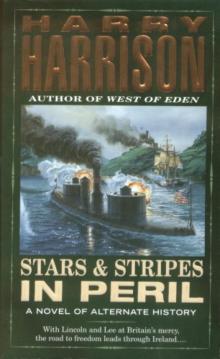 Stars And Stripes In Peril
Stars And Stripes In Peril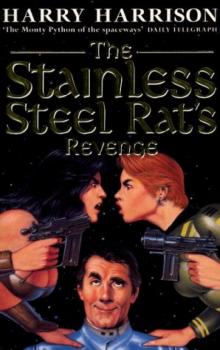 The Stainless Steel Rat's Revenge
The Stainless Steel Rat's Revenge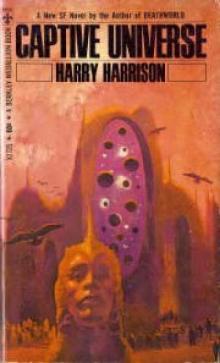 Captive Universe
Captive Universe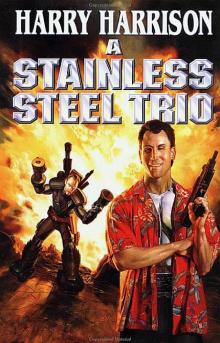 The Stainless Steell Rat Sings the Blues ssr-8
The Stainless Steell Rat Sings the Blues ssr-8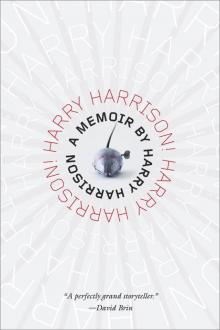 Harry Harrison! Harry Harrison!
Harry Harrison! Harry Harrison!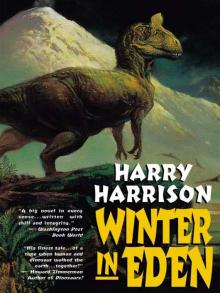 Winter in Eden
Winter in Eden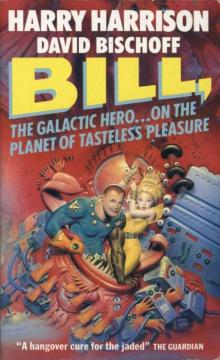 On the Planet of Tasteless Pleasures
On the Planet of Tasteless Pleasures